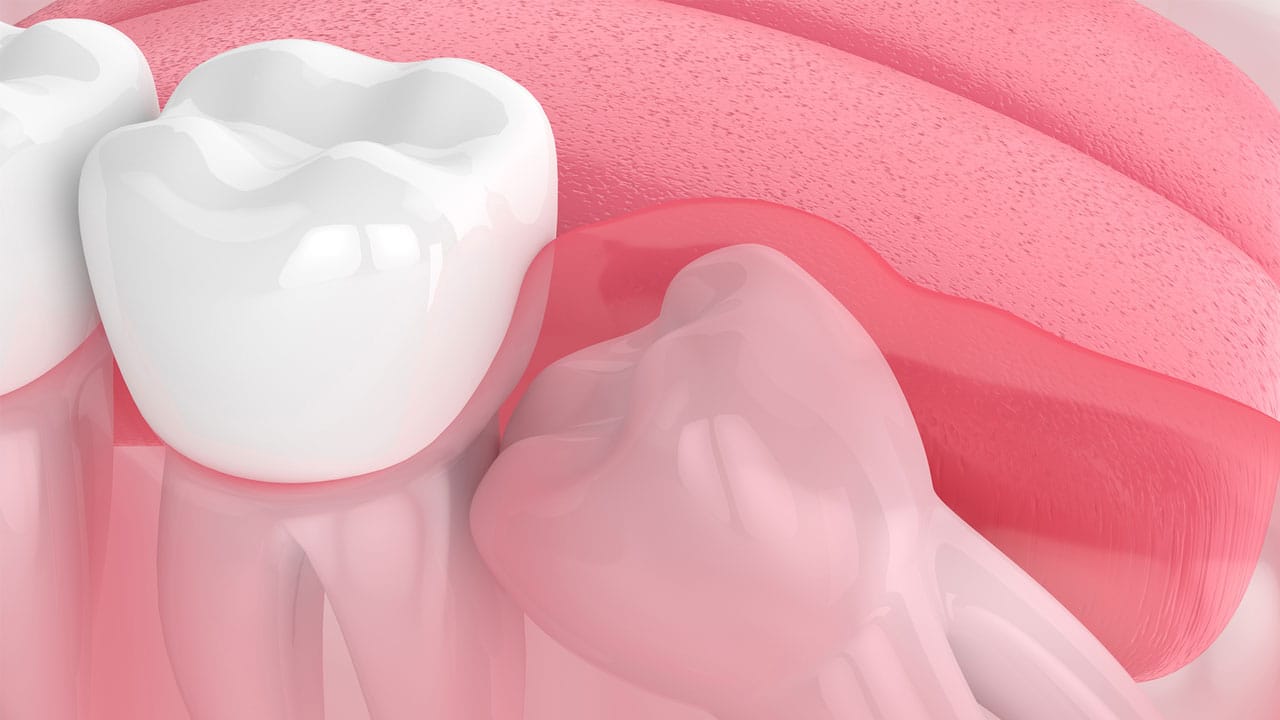
Wisdom teeth get their name because they are our last teeth to erupt—sometimes a decade after our last permanent teeth have come in—and come at a time when we are older and, presumably, wiser. Having wisdom teeth removed has become a routine practice in American culture, but there are varying reasons for doing so. One of the most common reasons is to avoid your new teeth disrupting the placement of your existing teeth, thus changing your smile and bite in a way you may not want. Additionally, the fear of impacted wisdom teeth causes many dentists to advise having these new chompers removed before they come in. But what exactly is an impacted wisdom tooth and how would it affect your oral health?
Problems with Wisdom Teeth
Adults can have between 0 and 4 wisdom teeth and they generally erupt in the late teens or early twenties of one’s life. While some people have no problem allowing for these teeth to come in, many people don’t have enough space in their mouth for these additional bones and problems can arise when they start to emerge twisted, tilted, or displaced, leading to discomfort, shifting teeth, and infection.
Types of Impacted Wisdom Teeth
The classification of impaction will depend on where the tooth lies within the jaw. There are three types of impaction a patient may experience.
- Soft Tissue Impaction happens when the tooth still remains under the gum but has penetrated through the bone.
- Partial Bony Impaction happens after the tooth has partially erupted, and a portion of it stays within the jawbone.
- Complete Bony Impaction is more severe and happens when the wisdom tooth stays entirely encased by the jawbone.
Signs and Symptoms
While it is perfectly normal to experience no signs or symptoms of an impacted wisdom tooth, there are a few to be wary of. Signs and symptoms of an impacted wisdom tooth include:
- Swollen or infected gums on top of the location of the impacted tooth
- Bad breath
- Headache
- Jaw ache
- Swelling in the jaw
- Bleeding and swollen gums
- Unpleasant taste in the mouth while eating
- Jaw stiffness
- Swollen lymph nodes
While these signs may be indicative of a variety of oral health issues, it’s important to have your mouth evaluated by your dentist if you suspect an impacted wisdom tooth or experience any of these symptoms.
If your dentist suggests having your wisdom teeth removed for any reason, it’s important to listen to them and follow his or her advice. The complications surrounding poorly grown in wisdom teeth are varying and can lead to a whole host of other issues later in life, so nipping the problem in the bud will be your best bet at a healthy mouth. While most wisdom tooth extractions are routine procedures that don’t require particularly heavy surgery, they can disrupt your daily routine for a few days and should be scheduled well in advance. Your dentist will work with you to figure out a game plan for you and your needs that will best address your unique situation.
To schedule your extraction consultation, give us a call at Aurora Dental Group today!
